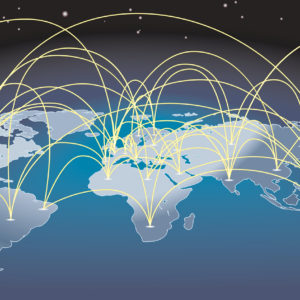U.S. Trade Ambassador Robert Lighthizer expressed the need for an ambitious agenda Thursday to promote domestic businesses and fight abuses from other countries.
President Donald Trump built his presidency on the promise that he would help domestic workers. He has argued the current approach to trade and immigration has allowed companies to undercut workers with cheap foreign labor. He pledged to withdraw from or renegotiate trade agreements so they better serve American workers.
Lighthizer assumed office as United States Trade Representative (USTR) last month. The agency is tasked with conducting trade negotiations and making recommendations to the president. Lighthizer highlighted what his agency is doing to reform the international trade system during a hearing with the House Ways and Means Committee.
“Let me be very clear on this point, we at the USTR want to help every American business that makes a product or provides a service increase exports to the world,” Lighthizer said. “Sometimes this requires enforcement action, other times negotiations are sufficient.”
Lighthizer detailed several key policy goals the administration is pursuing. The USTR plans to renegotiate trade deals to be fairer and more efficient, enforce trade deals more aggressively, and increase domestic exports. Lighthizer notes he has already met with his counterparts in most other major economies around the globe.
“In many cases they have expressed a willingness to work with the United States on efforts to reform the global trading system in ways the will lead to market outcomes that are both fairer and more efficient,” Lighthizer said. “We have also reached out to members of this committee, other administration officials, and key stakeholders in an effort to determine what improvements are needed in the international trading system.”
The North American Free Trade Agreement (NAFTA) has become a major focus for the administration. The president has denounced the deal for being unfair to domestic businesses. Lighthizer notes the administration has already begun the process of renegotiating it with partners like Canada and Mexico.
The USTR is also requesting an additional $57.6 million to implement the trade agenda. A six percent budget increase from 2016. Funds will help USTR implement a new inter-agency center on trade policy and hire eight additional staff to help with trade enforcement.
Lighthizer notes the agency will be working to more aggressively pursue countries that violate trade agreements with the United States. He also says the agency will more actively defend the country against baseless litigation from the World Trade Organization.
Trump has already delivered on one major campaign promise by upending the Trans-Pacific Partnership (TPP). The agreement would have been the largest regional trade deal in history at roughly 39 percent of the global GDP. Former President Barack Obama relied on Republican support when trying to implement the deal, with many on the left opposing it.
Trump was able to unilaterally withdraw from the deal because it never received a final congressional vote. Congress had delayed holding a final vote on the trade deal prompting some to believe it was already dead. It had drawn fierce criticism and became a main talking point during the campaign.

